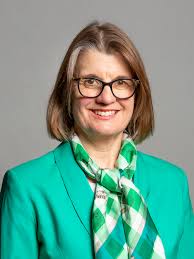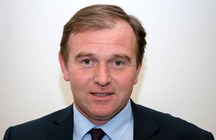Rachel Maclean – 2022 Speech on the International Day for the Elimination of Violence Against Women
The speech made by Rachel Maclean, the Conservative MP for Redditch, in Westminster Hall, the House of Commons on 1 December 2022.
It is a pleasure to serve under your chairmanship, Ms Elliott.
Violence against women and girls is a problem not just for women and girls. Every woman or girl who feels scared to walk down a street, get on a bus, go on a date, go to school or college, or get in a car with a man she works with is a daughter, sister, mother, wife, partner or friend of a man or a boy. It is not unreasonable to believe that half the population have exactly the same right to take such things for granted as the other half.
When the Government launched the multimillion-pound national broadcast media campaign Enough, we said that violence against women and girls should become as unacceptable as driving without a seatbelt. Many years ago, when seatbelt laws were first introduced, people said that it would never become engrained, no one would do it and people would not change. Those same people would say that violence against women and girls is inevitable and that we should stay at home, protect ourselves, not wear high heels, not go on the internet to look for dates, be more careful, not enjoy ourselves and definitely not get drunk at a festival. Those people were wrong then, and they are wrong now.
This Government have driven a sustained focus on bearing down on the awful crimes of rape and domestic abuse. This Government have increased funding to projects all across the country to increase the safety of women and girls on the streets, in the night-time economy and in their home. This Government have passed new laws to keep sex offenders and rapists in prison for longer. We have outlawed many forms of the worst types of violence that women and girls suffer, such as coercive and controlling behaviour. We passed new laws to toughen the measures to be taken against stalking.
There is of course a lot more to do. A lot of that work was done in response to the violence against women and girls strategy. Many actions are outstanding across the whole system—not just for the Home Office and Justice but for frontline health professionals, as my hon. Friend the Member for Thurrock (Jackie Doyle-Price) said so eloquently.
Margaret Ferrier
Will the hon. Lady give way?
Rachel Maclean
I am afraid that I have a lot to say, so I will not on this occasion.
In my constituency, we have benefited from tangible differences, thanks to this Government, with more than £400,000 in funding for the community on the Greenlands estate. I thank my friend Councillor Emma Marshall for all her fantastic work for the residents near the Woodrow centre, and of Ombersley Close and Rushock Close, working with our local police and crime commissioner, John Campion. She said that the funding has made people feel safer, and I have heard it myself when talking to residents in Woodrow and Greenlands.
I have been privileged to work with victims of spiking and those who campaign for them. We need to do more. I ask the Minister, through the good offices of his colleagues on the Treasury Bench, to speak to the Home Office and ask them to complete their review of the laws around spiking. That review was promised. There is an argument that we need a new offence, and I would like to see the results of the work that the Home Office policy officials are doing.
I will close my comments by saying that when we talk about women and girls, we must be clear about what we are discussing. I have a science background: definitions and language matter. We must be precise in our terminology. We do not serve the needs of those who wish to change gender or have a different gender identity by forgetting all about or ignoring the needs of biological females—adult females and children, girls, who are female children.
We have the privilege to stand up in this place and talk about these issues. There are many outside this Chamber who are looking to us to provide clarity. We have a duty to keep our citizens safe when they flee danger, when they flee abusive, predatory men and when they are fearing for their lives in their homes and need to reach a place of safety.
The hon. Member for Bristol South (Karin Smyth) mentioned Karen Ingala Smith and her book “Defending Women’s Spaces”. She speaks with the benefit of her decades of experience, campaigning for and supporting women who are victims and survivors of rape and sexual assault. She says many women only feel comfortable talking about the devastating and intimate details of male violence in a safe environment. A safe environment means women-only. We can look to the guidance issued by the Equality and Human Rights Commission and make sure that that guidance goes to all those providing services to keep women and girls safe.


